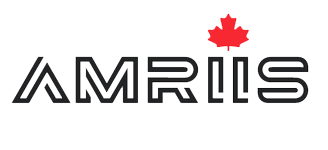The Comprehensive Economic and Trade Agreement (CETA) between Canada and the European Union (EU) is a multilateral trade agreement signed between the two parties, which came into effect on September 21, 2017. This agreement provides exceptional opportunities for EU citizens to work in Canada. Foreign nationals benefiting from the provisions of CETA can obtain authorization to work in Canada without the need for a Labour Market Impact Assessment (LMIA) or applying for a work permit.
Work Permit under the Comprehensive Economic and Trade Agreement (CETA)

CETA defines four cases in which a citizen of the EU can benefit from simplified access to a Canadian work authorization:
- CETA Business Visitors
- CETA Intra-Company Transferees
- CETA Investors
- CETA Contractual and Independent Professional Service Providers
Did you know?
Most EU member states allow their citizens to travel and work temporarily in Canada through International Experience Canada (IEC). The eligibility requirements for each category under CETA, as well as the application procedures, are detailed below.
Business Visitors
Business visitors under the Comprehensive Economic and Trade Agreement (CETA) can enter Canada for short periods without needing a work permit or a Labour Market Impact Assessment (LMIA). They are allowed to stay in Canada for a maximum of 90 days within a six-month period. CETA business visitors can apply for multiple entries to Canada for regular visits related to a specific project. CETA distinguishes between two categories of business visitors:
- Business Visitors for Investment Purposes: This category includes employees in managerial or specialized positions responsible for establishing a business. These visitors cannot engage in direct transactions with the general public or receive compensation from Canadian sources.
- Short-Term Business Visitors: This group includes business visitors coming to Canada for specific activities but cannot sell goods or services directly to the public or receive compensation from Canadian sources.
Authorized Activities for Short-Term Business Visitors under CETA:
- Meetings and consultations
- Research and design
- Marketing research
- Training seminars
- Trade shows and exhibitions
- Sales
- Purchases
- After-sales or after-lease service
- Business transactions
- Personnel (tourism sector)
- Translation and interpretation
Note: The authorized activities for business visitors under CETA differ from those outlined in the North American Free Trade Agreement (NAFTA). Applicants interested in traveling to Canada as business visitors under CETA can follow the specific application procedures for this category.
Intra-company transferees
Under CETA, employees transferred within a company from businesses located in EU countries can obtain a Canadian work permit without needing to undergo a Labour Market Impact Assessment (LMIA). To be eligible for this exemption, intra-company transferees must meet the following general criteria:
- Previous Experience: Have been employed by a company located in an EU country or associated with it for at least one year.
- Temporary Transfer: Be temporarily transferred to a Canadian company that has one of the following relationships with the EU company: subsidiary, affiliate, branch, or parent company.
Intra-company transferees are classified into three categories, each with its specific requirements:
- Executive Personnel: Equivalent to “executive capacity” positions under NAFTA. They can obtain a work permit for a maximum duration of three years, with a possible extension of up to 18 months.
- Specialists: Equivalent to “specialized knowledge” positions under NAFTA. They can obtain a work permit for a maximum duration of three years, with a possible extension of up to 18 months.
- Graduate Trainees: Must hold a university degree and be temporarily transferred to Canada for professional development or business training. They are eligible for a work permit for a maximum duration of one year, with no possibility of extension.
Applicants interested in obtaining a work permit under CETA, exempt from the LMIA, must follow the specific application procedures for CETA.
Investors
Under CETA, investors from EU member countries can obtain a Canadian work permit without needing to undergo a Labour Market Impact Assessment (LMIA). To meet the eligibility criteria under CETA for investors, an applicant must satisfy the following requirements:
- Engagement in Investment: Participate in the establishment, development, administration, or operation of an investment in Canada in a supervisory or managerial position.
- Investor: Be the investor themselves.
- Substantial Investment: Be employed by a company that has committed or is currently committed to investing a substantial amount of capital in Canada.
The evaluation criteria for investors under CETA are similar to those outlined in the North American Free Trade Agreement (NAFTA). Approved investors can receive an LMIA-exempt work permit for a maximum duration of one year, with the possibility of extension at the discretion of the visa officer. Interested applicants can follow the specific application procedures for CETA work permits.
Contractual Service Providers and Independent Professionals
Under CETA, certain contractual service providers and independent professionals who are citizens of EU member countries can obtain a Canadian work permit without needing to undergo a Labour Market Impact Assessment (LMIA). To be eligible for this exemption, these workers must meet the following general and specific criteria:
General Criteria:
- Citizenship: Must be a citizen of an EU member state.
- Nature of Service: Must be engaged in the temporary provision of a service for a maximum duration of one year.
- NOC Code: The service provided must correspond to a code in the National Occupational Classification (NOC) included in Canada’s commitments under CETA.
Specific Criteria:
- Contractual Service Providers:
- The employee must work for a company based in an EU country that has a contract with a Canadian consumer.
- The EU company must not have a physical presence in Canada.
- The candidate must have at least three years of experience in the sector of the service provided and at least one year of experience with the EU company.
- Independent Professionals:
- The independent professional must be contracted to provide a service to a Canadian consumer.
- The candidate must be an established self-employed individual with at least six years of experience in the sector where the service will be provided.
Interested applicants can follow the application procedures for CETA work permits to benefit from the LMIA exemption.
Comprehensive Economic and Trade Agreement (CETA)
CETA Application Procedures
Foreign nationals eligible for an LMIA-exempt work permit or for entry without a work permit (such as short-term business visitors) under the Comprehensive Economic and Trade Agreement (CETA) can submit their application at a Canadian port of entry (POE). Alternatively, work permit applications can be filed prior to travel at the appropriate Visa Application Centre (VAC). Additionally, a EU national already present in Canada as a temporary resident may submit their work permit application from within the country.
Work permits issued under CETA can be extended at the discretion of an immigration officer. Intra-company transferees can obtain an extension of up to 18 months. However, graduate interns are not eligible for an extension of their permit.

Ready to Get Started?
Explore your immigration options to Canada! Complete our free assessment today, and a member of the Amriis team will contact you to discuss the possibilities available to you.



